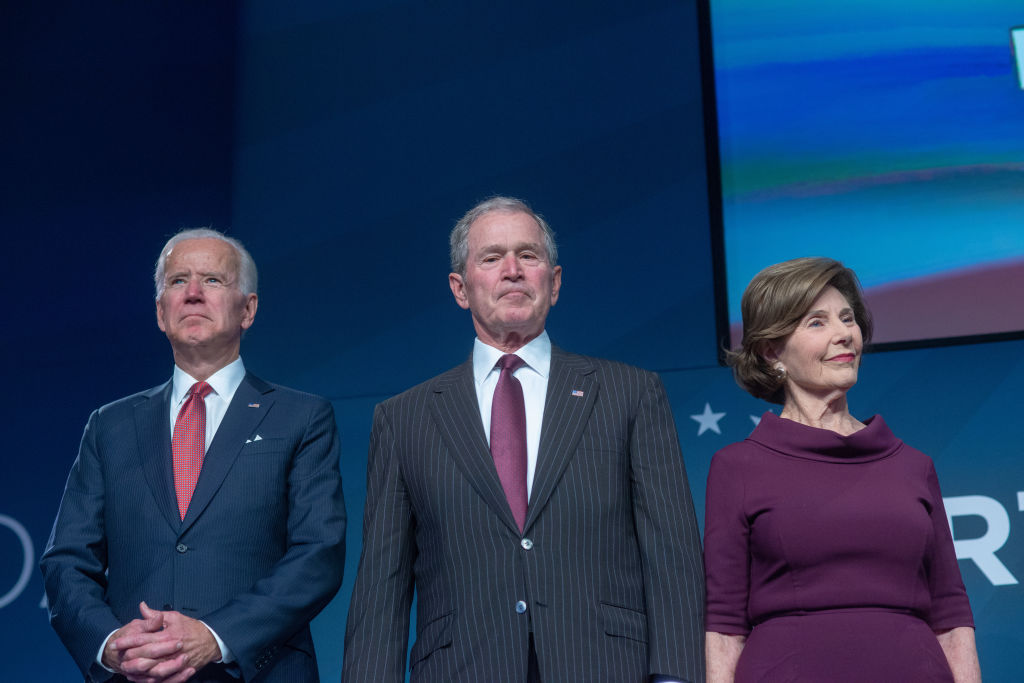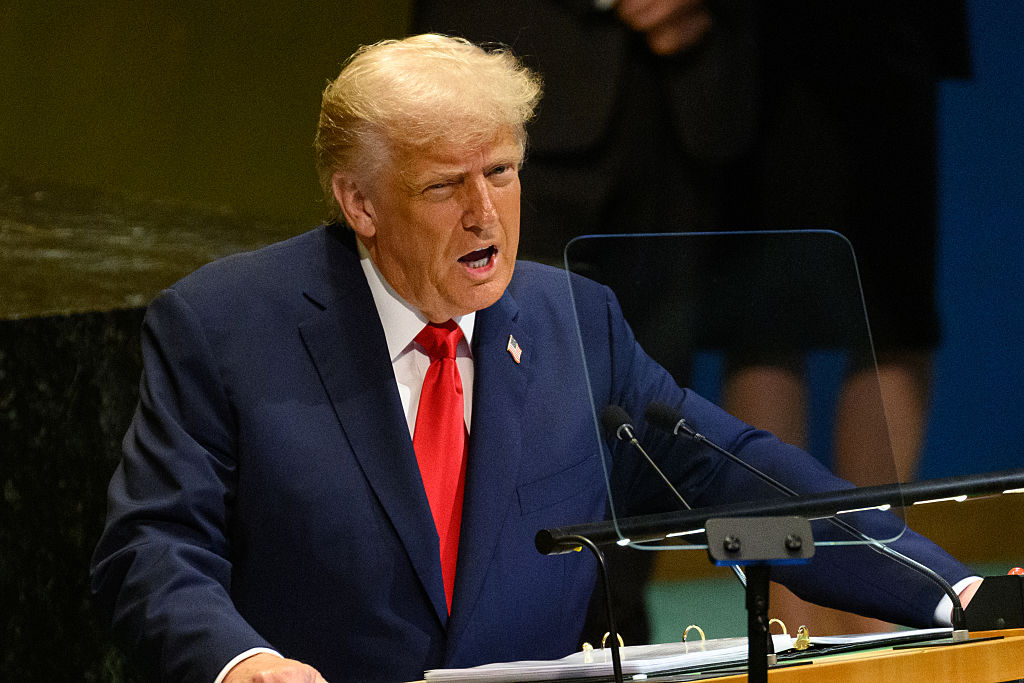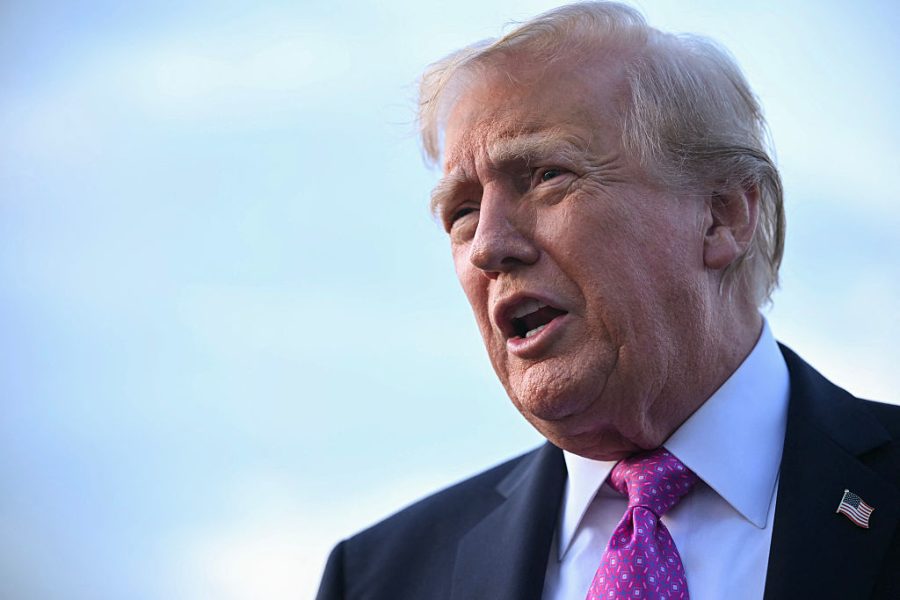Against the backdrop of the Ukraine crisis, we have been bombarded with many historical analogies. Leading the list are the 1961 Berlin standoff and the 1962 Cuban Missile crisis. And then there is that all-time favorite, the 1938 Munich Agreement.
Those crises should certainly not be regarded as ancient history. But then why go back 60 or 80 years when you can walk down memory lane?
Like, say, when an American president was trying to rally the public and mobilize international support in the name of using military force against an alleged bloodthirsty dictator who was supposedly threatening Western geostrategic interests and challenging its liberal democratic values?
I am referring, of course, to the debate that took place in Washington during the first year of this century over whether the United States should go to war against Saddam Hussein’s Iraq. According to the then-consensus, Saddam was in possession of weapons of mass destruction (WMDs) and in his spare time was supporting terrorism and trying to destabilize the Middle East.
The debate concluded, as you may recall, with the passage of the historic 2002 congressional resolution authorizing the use of military force against Iraq, by a vote of 296-133 in the House of Representatives and by a vote of 77-23 in the Senate. That gave President George W. Bush the green light to launch a military campaign in Mesopotamia and get hold of those WMDs hidden somewhere between the Tigris and the Euphrates.
Since no WMDs were discovered and the results of the Iraq war are still haunting us, the following narrative has evolved to explain what happened.
Almost “everyone,” with the exception of a few lefty peaceniks and conservative isolationists, and including the intelligence agencies of the United States and Great Britain, believed that Saddam had WMDs and that only the use of military force against Iraq would remove that threat to world peace.
That consensus that officials in the Bush administration and their neoconservative cheerleaders constructed was eventually embraced by most members of Washington’s foreign policy establishment, including the mainstream media. They then promoted what we learned in retrospect were, well, lies that helped persuade the American public and its representatives on Capitol Hill to support going to war.
Then came the moral of that tragic story: never again will we be drawn into a costly military intervention in response to a war-marketing campaign that is based on judgments made by the intelligence agencies and promoted by a conned and conning MSM.
As part of that narrative, we were also led to believe that those who choreographed the Iraq war and backed it were “punished.” Hence journalist Judith Miller lost her job in the New York Times for her misleading coverage of Iraq’s WMDs based on leaks she received from Bush administration officials. And then-senator Hillary Clinton lost the Democratic presidential primary race against Senator Barack Obama in part because she had voted for the congressional resolution authorizing the president to attack Iraq.
But in fact, President Bush was not punished. He was re-elected to a second term, while his comrade-in-arms, British Prime Minister Tony Blair, has since been transformed into a global sage. Certainly most of the government officials and generals who planned and carried out the war in Iraq and the journalists and pundits who echoed their views did not lose their jobs.
Those who were responsible directly and indirectly for what was perhaps the worst strategic mistake in American history were rewarded with new positions of power and influence. And now, in an ironic twist of history, they are helping another president mobilize the nation for another war against another autocrat that is supposedly threatening core US national interests.
It’s true that, unlike the Bush-Blair duo, President Joe Biden and his British buddy Boris Johnson are not proposing to go to war against Russia. They are responding to provocations made by Russian President Vladimir Putin.
But then Iraq’s Saddam Hussein was also provoking the West in the early twenty-first century with his bellicose statements and aggressive steps, threatening to destroy Israel, massacring his Kurdish population, and insisting that, yes, he had WMDs. And he did start a war with Iran and had a nuclear reactor at one time. He was a Bad Man in the context of the Middle East, just like Putin is in Russian terms.
But just as in the months leading to the Iraq war, another American administration and its intelligence agencies are now trying to convince us that Putin is posing a direct threat to US national security by demanding that his neighbor Ukraine not join a military alliance that is directed against him.
And a gullible MSM is buying this storyline hook, sink and liner, turning Putin into America’s archenemy du jour, with no serious consideration of the complexity of the historical, cultural, and geographical issues involved.
In a way, there was more serious debate in Washington about the idea of going to war against Iraq than there is about the threat Russia supposedly poses.
The former chairman of the Senate Intelligence Committee, Bob Graham, refused to take the Bush administration at its word and voted against the war resolution. Just a month before the vote, his committee had uncovered that the administration hadn’t produced a National Intelligence Estimate (NIE), a comprehensive report from the entire intelligence community, to rationalize pre-emptive war. He then invoked rarely used senatorial authority and directed the completion of an NIE, which exposed dissent to the administration’s key arguments.
No Bob Graham-like figure has emerged during the current debate over the Ukraine crisis.
After Republican Senator Josh Hawley from Missouri dared to suggest that the United States would be worse off if Ukraine was admitted to NATO, he was accused of “parroting Russian talking points” and blasted by some of his Democratic and Republican colleagues.
Senators from both parties are now working on legislation to aid Ukraine and to impose sanctions on Russia. The only debate is to whether the sanctions should be imposed even if Russia does not invade Ukraine.
In reality, Hawley’s dissent should not be seen as the wild musings of a political enfant terrible but as in line with the views of two of Washington’s Wise Men, former secretary of state Henry Kissinger and the late national security advisor Zbigniew Brzezinski, who were opposed to the idea of Ukraine joining NATO. Both suggested that the ideal solution would be to have a Ukraine like Finland or Austria, a bridge between Russia and the West. (The two were also opposed to the military adventure in Iraq.)
Why is it that such views are not being heard in Washington today?
Perhaps because, as during the lead-up to the war in Iraq, there are those in Washington who want to make sure that no word of dissent is heard.
Thus, while in 2003 the leading neoconservative pundit David “Axis of Evil” Frum bashed those conservatives opposed to the war in Iraq as “unpatriotic,” these days the Never Trumper Frum insists those opposed to inviting Ukraine to join NATO are echoing “Putin’s talking points justifying aggression against Ukraine.”
“They had learned nothing and forgotten nothing,” Talleyrand (apparently) said about the Bourbons, which could apply to the likes of Frum. But unlike the Bourbons, they have yet to be punished for their mistakes.

























